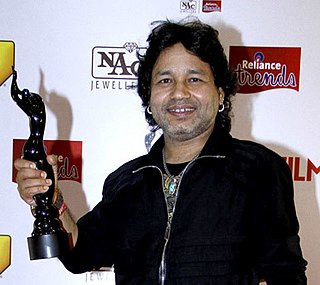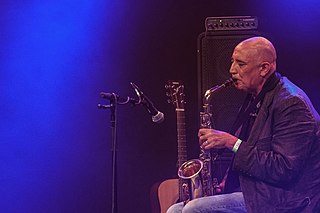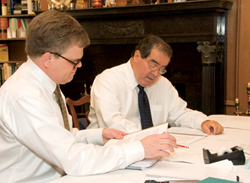A Quote by Kailash Kher
I don't follow anything blindly. I have to know the entire thing, if I have to get in to it. It might sound funny to you, but it's like using English language. I use an English word only when I know its meaning and understand its connotation. You won't hear me say, 'What's up, dude' or anything like that just for the heck of it.
Related Quotes
Growing up, I didn't know anything about comedy and didn't know anything about comedians or what standup was. I grew up in the projects with no dream of anything, it was in my formatting when i got older and started talking to my friends about how I felt, they would be like, "dude, that's funny." Then one day my friend was like, "Dude, you don't understand how funny you are, you need to do standup"!
There is one thing about Englishmen, they won't fix anything till it's just about totally ruined. You couldn't get the English to fix anything at the start. No! They like to sit and watch it grow worse. Then, when it just looks like the whole thing has gone up Salt Creek, why, the English jump in and rescue it.
I have a funny relationship to language. When I came to California when I was three I spoke Urdu fluently and I didn't speak a word of English. Within a few months I lost all my Urdu and spoke only English and then I learned Urdu all over again when I was nine. Urdu is my first language but it's not as good as my English and it's sort of become my third language. English is my best language but was the second language I learned.
The lyrics are not an important thing to me. In fact, it can be a distraction. If I knew the language enough to know it was a horrible love song with stupid lyrics - like most of the popular songs are today in the English language that I hear - then it would be much more of a turnoff then if it would allow me to interpret it from the expressive capabilities of the vocalizing or of the sound itself, which allows me to create my own meaning for it, which elevates it into a higher piece of work for me.
A word about 'plain English.' The phrase certainly shouldn't connote drab and dreary language. Actually, plain English is typically quite interesting to read. It's robust and direct-the opposite of gaudy, pretentious language. You achieve plain English when you use the simplest, most straightforward way of expressing an idea. You can still choose interesting words. But you'll avoid fancy ones that have everyday replacements meaning precisely the same thing.
The revival of Hebrew, as a spoken language, is a fascinating story, which I'm afraid I cannot squeeze into a few sentences. But, let me give you a clue. Think about Elizabethan English, where the entire English language behaved pretty much like molten lava, like a volcano in mid-eruption. Modern Hebrew has some things in common with Elizabethan English. It is being reshaped and it's expanding very rapidly in various directions. This is not to say that every one of us Israeli writers is a William Shakespeare, but there is a certain similarity to Elizabethan English.
The fact that for a long time Cubism has not been understood and that even today there are people who cannot see anything in it means nothing. I do not read English, an English book is a blank book to me. This does not mean that the English language does not exist. Why should I blame anyone but myself if I cannot understand what I know nothing about?" -Pablo Picasso.
I laughed. “You’re too young to be so … pessimistic,” I said, using the English word. “Pessi-what?” “Pessimistic. It means looking only at the dark side of things.” “Pessimistic … pessimistic …” She repeated the English to herself over and over, and then she looked up at me with a fierce glare. “I’m only sixteen,” she said, “and I don’t know much about the world, but I do know one thing for sure. If I’m pessimistic, then the adults in this world who are not pessimistic are a bunch of idiots.
When I was quite young I fondly imagined that all foreign languages were codes for English. I thought that "hat," say, was the real and actual name of the thing, but that people in other countries, who obstinately persisted in speaking the code of their forefathers, might use the word "ibu," say, to designate not merely the concept hat, but the English word "hat." I knew only one foreign word, "oui," and since it had three letters as did the word for which it was a code, it seemed, touchingly enough, to confirm my theory.
We do not for example say that the person has a perfect knowledge of some language L similar to English but still different from it. What we say is that the child or foreigner has a 'partial knowledge of English' or is 'on his or her way' towards acquiring knowledge of English, and if they reach this goal, they will then know English.
English is the largest of human tongues, with several times the vocabulary of the second largest language -- this alone made it inevitable that English would eventually become, as it did, the lingua franca of this planet, for it is thereby the richest and most flexible -- despite its barbaric accretions . . . or, I should say, because of its barbaric accretions. English swallows up anything that comes its way, makes English out of it.
I was terrible in English. I couldn't stand the subject. It seemed to me ridiculous to worry about whether you spelled something wrong or not, because English spelling is just a human convention--it has nothing to do with anything real, anything from nature. Any word can be spelled just as well a different way.
When you get called the n-word, as a black person you can do anything. It's like getting a gold star in Super Mario Brothers and junk. I hear the music when I hear the n-word. I get right into it; I get really into it. You can do anything. You could be in a fancy restaurant - just start throwing poop at the walls. People be like, 'What are you doing?' 'Someone called him the n-word.



































